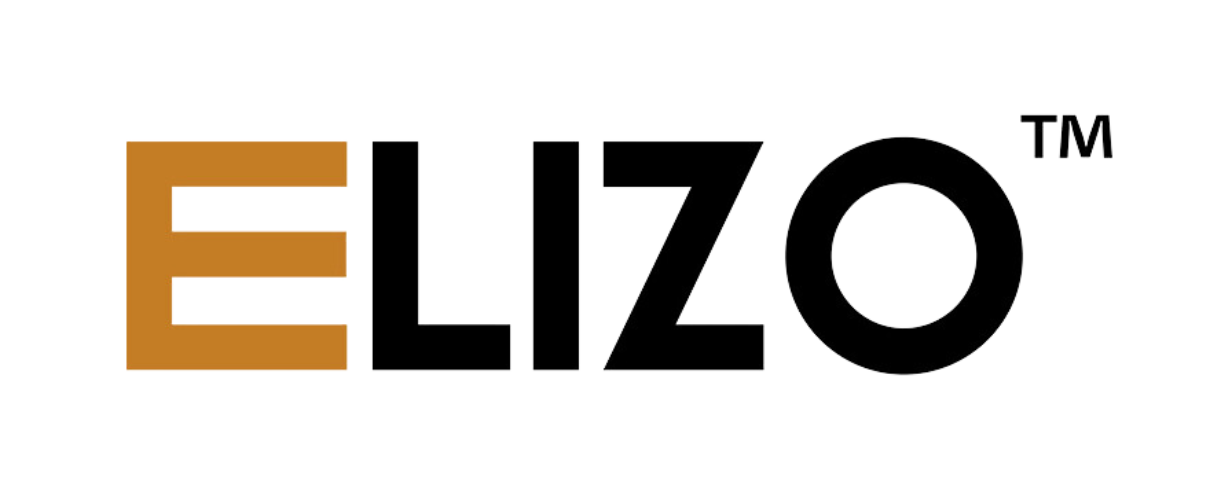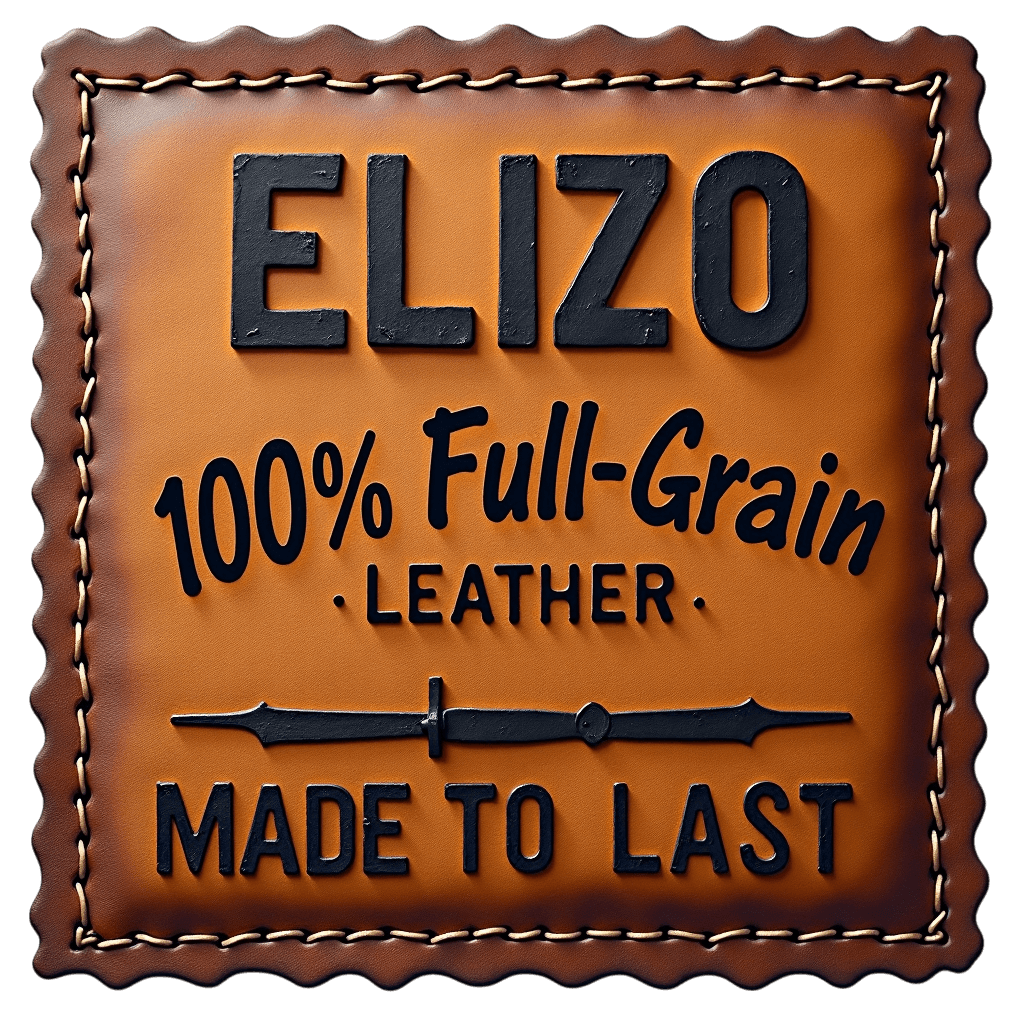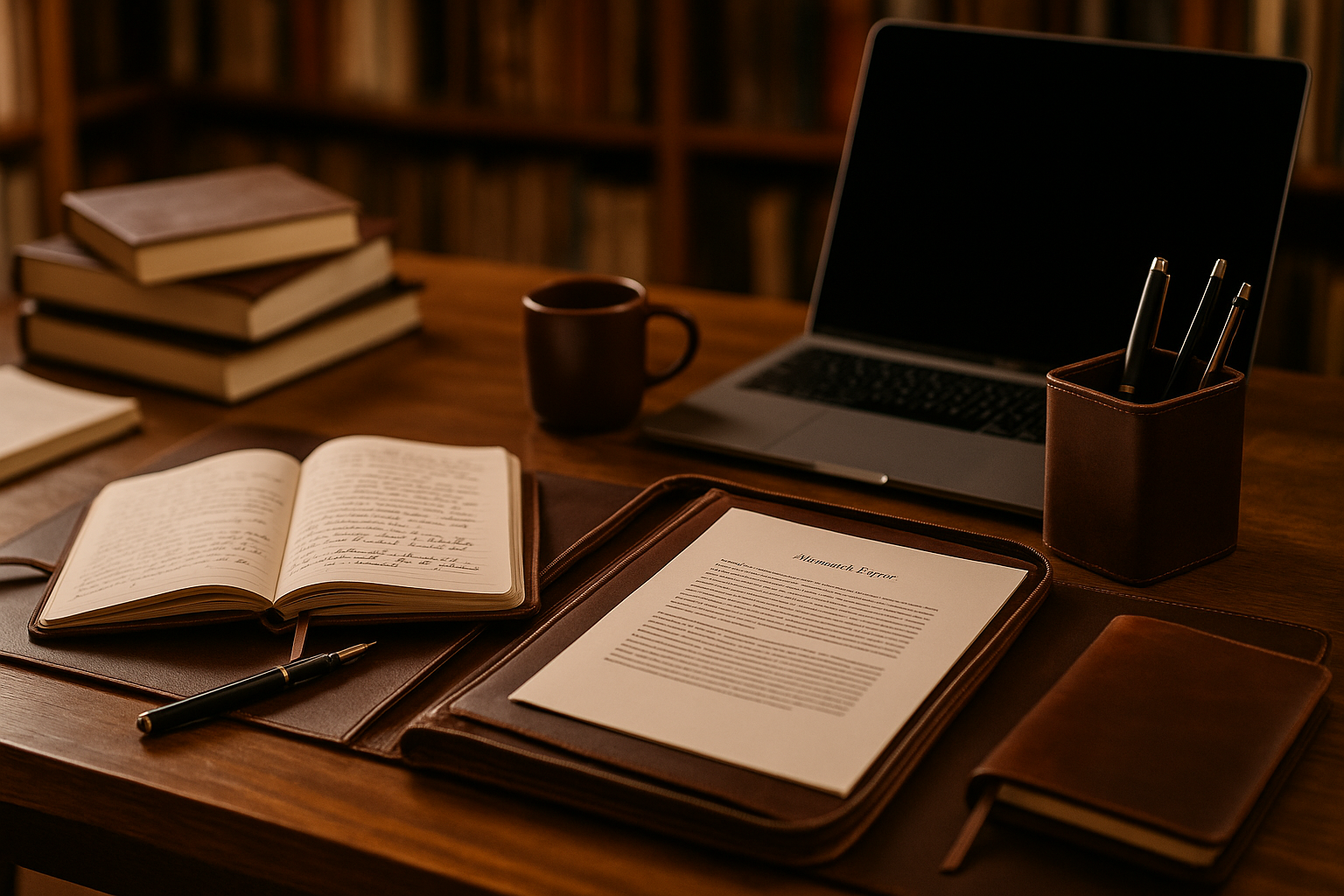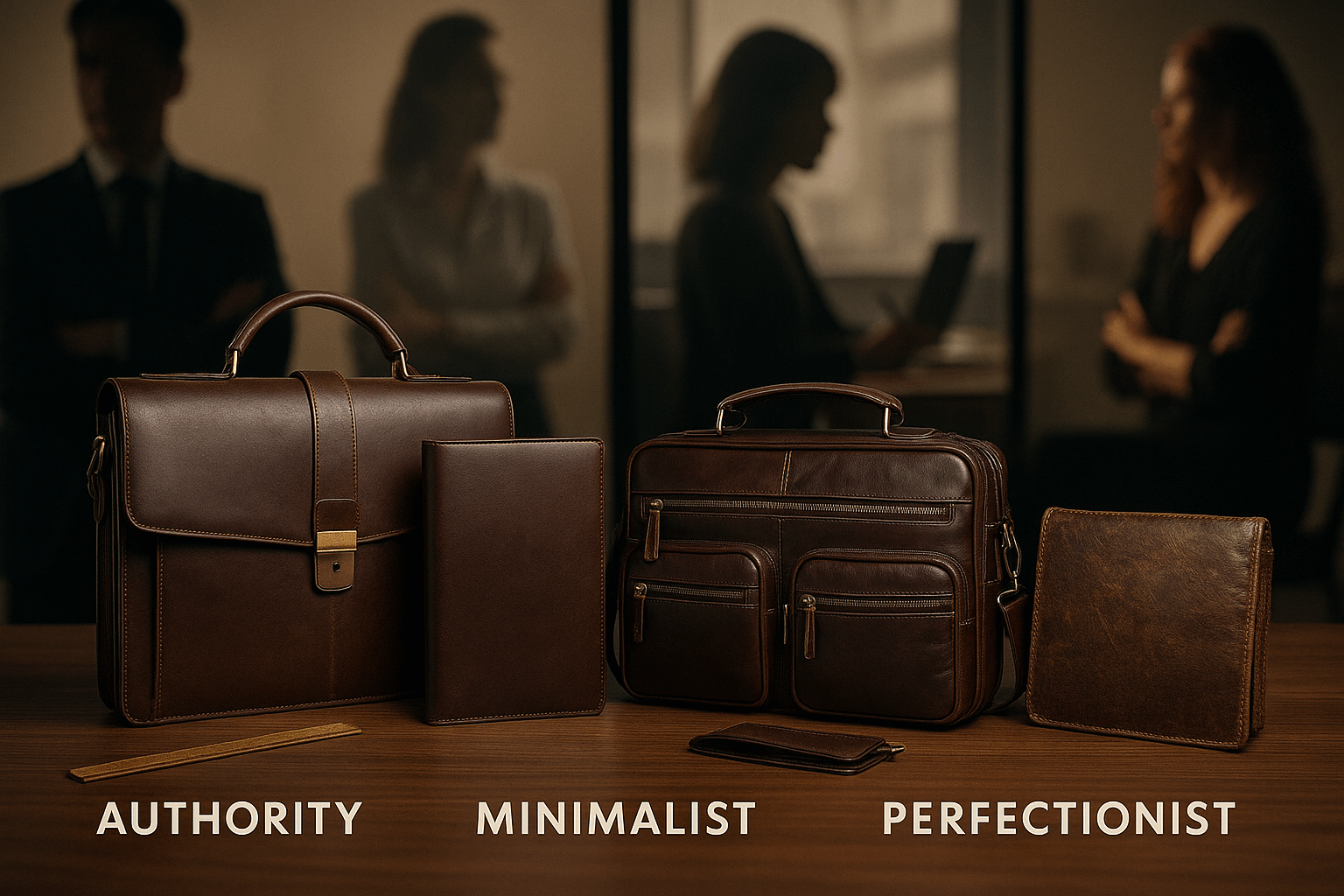
What Your Leather Tells About You: The Psychology Behind Leather Choices

Every professional accessory choice sends a message, but few materials communicate as powerfully as leather. From boardrooms to coffee shops, the type and quality of leather accessories you carry influences first impressions, conveys personal values, and reflects your approach to quality and investment thinking.
Understanding the psychology behind leather choices helps explain why certain accessories resonate with different personality types and professional situations. Whether you're drawn to a classic executive briefcase or prefer a modern portfolio organizer, your leather preferences reveal insights about your character, aspirations, and professional identity.
The Unconscious Communication of Material Choices
Research in social psychology reveals that material possessions serve as "extended self" expressions, communicating identity and values to others while reinforcing personal beliefs about quality, status, and success.
First Impression Formation
Within seconds of meeting someone, observers form judgments based on visual cues including clothing, accessories, and material quality. Leather accessories play a significant role in this rapid assessment process, signaling attention to detail, investment thinking, and professional competence.
The texture, aging, and overall condition of leather goods provide instant information about the owner's values and habits. Well-maintained leather suggests conscientiousness and respect for possessions, while premium materials indicate understanding of quality and long-term thinking.
These unconscious assessments influence professional interactions, business relationships, and networking opportunities in ways that most people never consciously recognize but consistently experience.
Social Signaling Through Quality
Leather quality serves as a form of social signaling, communicating economic status, aesthetic sophistication, and professional achievement without explicit verbal declaration. This subtle communication affects how others perceive competence and trustworthiness.
The choice to invest in quality leather often reflects values beyond simple materialism—it demonstrates patience, planning ability, and appreciation for craftsmanship that extends to other areas of decision-making and professional behavior.
Understanding these dynamics helps explain why successful professionals often gravitate toward quality leather accessories as tools for relationship building and career advancement.
Personality Types and Leather Preferences
Different personality types show consistent patterns in leather accessory preferences, reflecting deeper psychological traits and professional approaches that influence career paths and success strategies.
The Detail-Oriented Perfectionist
Individuals who prioritize precision and systematic approaches often prefer highly organized leather accessories with multiple compartments and structured designs. Portfolio organizers and comprehensive briefcases appeal to this personality type's need for order and control.
These individuals typically maintain their leather accessories meticulously, viewing proper care as both practical necessity and personal responsibility. Their accessories often age beautifully due to consistent maintenance and careful handling.
Professional environments that reward attention to detail—law, accounting, engineering—often see high concentrations of this personality type and corresponding leather accessory preferences.
The Minimalist Efficiency Expert
Professionals who value simplicity and efficiency gravitate toward streamlined leather designs that maximize functionality while minimizing bulk. Slim wallets and compact organizers reflect this personality's focus on essential functionality.
This personality type often chooses leather based on performance characteristics rather than decorative elements, prioritizing durability, weight, and organizational efficiency over ornamental features.
Technology professionals, consultants, and entrepreneurs frequently exhibit these preferences, seeking accessories that support mobile lifestyles and rapid decision-making.
The Traditional Authority Figure
Individuals in leadership positions often prefer classic leather designs that project authority and competence while honoring traditional business aesthetics. Traditional briefcases and formal accessories align with their need to project stability and trustworthiness.
These professionals understand that conservative leather choices communicate reliability and respect for institutional values, supporting their effectiveness in hierarchical organizations and formal business contexts.
Executive roles, academic leadership, and established professional services see high representation of this personality type and corresponding accessory preferences.
The Creative Professional
Creative individuals often seek leather accessories that balance professional requirements with personal expression, choosing pieces that stand out while remaining appropriate for business contexts.
Unique textures, distinctive colors, or artisanal construction details appeal to this personality's appreciation for craftsmanship and individual expression while meeting professional presentation needs.
Design fields, marketing, architecture, and other creative industries provide environments where these preferences can flourish without compromising professional credibility.
Age and Career Stage Influences
Leather preferences evolve throughout career development, reflecting changing professional needs, economic circumstances, and personal priorities as individuals advance through different life stages.
Early Career Investment Thinking
Young professionals often face budget constraints while recognizing the importance of professional presentation, leading to careful consideration of leather accessory investments that must balance cost with quality and longevity.
First leather purchases frequently represent significant financial commitments that teach valuable lessons about quality, durability, and the relationship between price and long-term value.
The decision to invest in quality leather early in career development often reflects ambition, planning ability, and understanding of professional presentation's importance for advancement.
Mid-Career Sophistication
Established professionals typically develop more refined preferences based on experience with different leather types and understanding of how accessories support professional effectiveness and relationship building.
This career stage often involves upgrading early purchases while building coordinated collections that reflect professional achievement and support diverse business contexts.
Experience teaches the value of quality leather's durability and aging characteristics, leading to more confident investment in premium pieces that will serve throughout career advancement.
Executive-Level Presence
Senior professionals often gravitate toward exceptional quality and classic designs that project authority while reflecting appreciation for traditional craftsmanship and timeless aesthetics.
At this level, leather accessories serve as symbols of achievement while supporting the gravitas required for leadership positions and high-stakes business relationships.
The focus shifts from budget considerations to finding pieces that properly represent professional status while providing the functionality required for complex business operations.
Cultural and Regional Influences
Geographic location and cultural background significantly influence leather preferences, with regional business cultures, climate considerations, and traditional aesthetics shaping accessory choices.
Urban vs. Rural Professional Environments
Urban business environments often favor sleek, modern leather designs that complement fast-paced professional lifestyles and contemporary office aesthetics, while rural or traditional business contexts may prefer classic designs that honor established professional customs.
Transportation patterns also influence preferences, with public transit users often preferring compact designs while car commuters may choose larger accessories that accommodate extensive daily materials.
The density and competitiveness of urban markets can increase focus on distinctive accessories that help professionals stand out while maintaining appropriate business presentation.
Industry Culture Alignment
Different industries develop distinct accessory cultures that influence individual preferences and shape expectations about appropriate professional presentation within specific business contexts.
Conservative industries like banking and law often maintain traditional leather preferences, while technology and creative fields may embrace more contemporary designs and unconventional approaches to professional accessories.
Understanding industry culture helps professionals choose accessories that support rather than hinder their effectiveness within specific business environments and relationship contexts.
The Investment Psychology Behind Leather Choices
The decision to invest in quality leather accessories reflects broader psychological patterns related to financial planning, value assessment, and long-term thinking that often correlate with professional success.
Quality vs. Price Decision-Making
Individuals who understand the difference between cost and value often demonstrate this thinking through leather accessory choices, preferring quality pieces that provide superior long-term performance over cheaper alternatives requiring frequent replacement.
This decision-making pattern typically extends to other areas of life and business, supporting better financial outcomes and more successful professional relationships through consistent focus on value creation.
The ability to delay gratification and invest in quality leather often reflects the same psychological traits that support career advancement and business success in competitive professional environments.
Ownership Pride and Care Behaviors
Individuals who invest in quality leather typically develop strong ownership pride that motivates proper care and maintenance, creating positive feedback loops that reinforce appreciation for quality and craftsmanship.
This care behavior often extends to other possessions and professional responsibilities, creating patterns of conscientiousness that support career success and relationship building.
The satisfaction derived from well-maintained leather accessories provides daily positive reinforcement for quality-focused decision-making and long-term thinking approaches.
Gender Differences in Leather Psychology
Research reveals distinct patterns in how different genders approach leather accessory selection, reflecting varying professional challenges, social expectations, and personal priorities.
Professional Credibility Considerations
Women in business often use quality leather accessories to enhance professional credibility in male-dominated environments, with classic designs and premium materials helping to establish authority and competence.
The choice of leather accessories can serve as armor against gender bias while providing practical organization for complex professional responsibilities and diverse business contexts.
Quality leather's durability and aging characteristics particularly appeal to women who value long-term investment and appreciate accessories that improve rather than deteriorate through professional use.
Functional vs. Aesthetic Balance
Men often prioritize functional characteristics in leather accessories, focusing on organizational efficiency and durability, while women may balance functionality with aesthetic considerations and style coordination.
These different approaches reflect varying professional environments and personal priorities, with both perspectives contributing to successful professional presentation and business effectiveness.
Understanding these differences helps explain market preferences and supports better accessory selection for individual needs and professional contexts.
The Digital Age Impact on Leather Preferences
Technology's influence on professional life has created new considerations for leather accessory selection while maintaining traditional needs for organization, protection, and professional presentation.
Technology Integration Requirements
Modern professionals require leather accessories that accommodate digital devices while maintaining traditional elegance and professional appearance, creating demand for hybrid designs that serve contemporary needs.
The need to protect valuable technology while maintaining professional presentation has influenced leather design evolution, with new features supporting modern workflow requirements.
Successful technology integration in leather accessories reflects the broader challenge of maintaining human values and aesthetic appreciation in increasingly digital professional environments.
Digital vs. Analog Preference Patterns
Despite widespread technology adoption, many professionals maintain strong preferences for analog tools like leather journals and physical organization systems that provide tactile satisfaction and cognitive benefits.
The persistence of leather accessory preferences in digital environments suggests deep psychological needs for physical beauty, craftsmanship appreciation, and tangible quality that technology cannot fully replace.
Understanding these preferences helps explain continued demand for traditional leather goods and supports product development that honors both modern functionality and timeless aesthetic values.
Building Professional Identity Through Leather Choices
Leather accessories play important roles in professional identity development, serving as daily reminders of values, goals, and standards while supporting the confidence required for career advancement.
Identity Reinforcement Mechanisms
Quality leather accessories provide daily tactile and visual reminders of personal standards and professional aspirations, creating positive feedback loops that reinforce desired behaviors and attitudes.
The investment in quality leather often represents commitment to professional excellence that influences other decisions and supports consistent high standards across various life areas.
Regular interaction with well-crafted objects can elevate overall aesthetic appreciation and attention to detail that benefits professional performance and relationship building.
Confidence and Performance Enhancement
Research suggests that wearing or carrying quality items can enhance confidence and performance through psychological mechanisms related to self-perception and social identity reinforcement.
The knowledge that one's accessories reflect quality and thoughtfulness can provide subtle confidence boosts that improve professional interactions and support more effective business communication.
This psychological benefit often justifies quality leather investments beyond purely functional considerations, contributing to career success in ways that are difficult to quantify but consistently experienced.
Making Authentic Leather Choices
Understanding the psychology behind leather preferences helps individuals make more authentic choices that align with personal values, professional needs, and long-term satisfaction rather than following trends or external pressures.
Self-Assessment for Leather Selection
Effective leather selection requires honest assessment of lifestyle patterns, professional requirements, and personal values to ensure accessories support rather than complicate daily activities and career goals.
Consider factors like daily routine, travel frequency, professional environment, and personal style preferences when evaluating leather options to ensure long-term satisfaction with investment decisions.
The most successful leather choices reflect genuine understanding of personal needs and preferences rather than aspirational ideals that don't match actual usage patterns and lifestyle requirements.
Balancing Practicality and Aspiration
Quality leather accessories can serve both current practical needs and future aspirational goals, supporting career development while providing immediate organizational benefits and professional presentation enhancement.
The key lies in choosing pieces that stretch slightly beyond current requirements while remaining grounded in realistic assessment of professional development and lifestyle evolution.
This balanced approach ensures leather investments provide immediate value while supporting long-term goals and career advancement throughout changing professional circumstances.
Conclusion: The Deeper Meaning of Leather Choices
Your leather accessories reflect far more than simple material preferences—they communicate values, aspirations, and approaches to quality that influence how others perceive your professional competence and personal character.
Understanding these psychological dynamics helps explain why quality leather goods maintain their appeal despite changing fashion trends and technological advancement, serving fundamental human needs for beauty, craftsmanship, and tangible quality.
Whether you're drawn to organized desk accessories that reflect systematic thinking or travel bags that support adventurous lifestyles, your choices reveal authentic aspects of personality and professional identity.
The most successful leather choices align personal psychology with practical requirements while supporting professional goals and providing daily satisfaction through beauty, functionality, and quality craftsmanship.
For leather accessories that honor your authentic preferences while supporting professional success, explore our complete collection designed to serve diverse personality types and professional requirements throughout career development and personal growth.
Remember: the best leather accessories don't just carry your belongings—they reflect your values and support your success in ways that extend far beyond their practical function.
